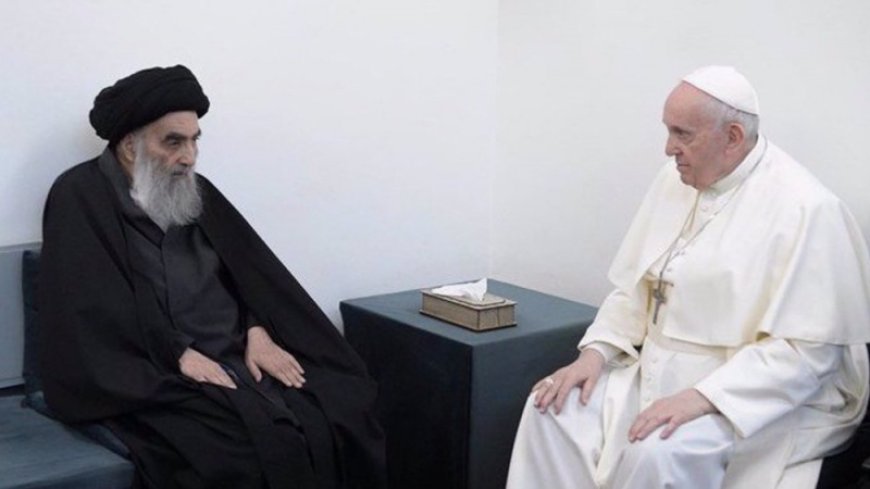In a message to the Pope, Ayatollah Sistani asks for more respect between different faiths.
In a message to the Pope, Ayatollah Sistani asks for more respect between different faiths.

Grand Ayatollah Ali al-Sistani, who is the most important Shia cleric in Iraq, has said that peaceful coexistence is important and that people of different faiths should work together to reject violence and support respect. Ayatollah Sistani said this in answer to a letter from Pope Francis, the head of the Catholic Church, on the second anniversary of his trip to Iraq and meeting with the leading Shiite cleric. Ayatollah Sistani said that the Pope's historic trip to Iraq and their meeting in the Iraqi city of Najaf gave many Muslims, Christians, and people of other faiths a "nudge" to be more tolerant and live together with people of other faiths.
When the senior Shia cleric talked about the things that were talked about at the meeting, he stressed how important it was to work together to support a culture of peaceful coexistence and to reject violence and hatred. Ayatollah Sistani also called for people of different faiths to respect each other and protect each other's rights in order to live in peace. "More needs to be done to defend oppressed people around the world, as the tragedies that many people and ethnic and social groups have gone through in many places in the East and West of the world contribute to the suppression of fundamental freedoms and the lack of social justice has led to the rise of some extremist movements that are not afraid to attack people with whom they disagree in thought or belief," he said. "I think it's important for everyone to pay more attention to dealing with these problems and work as hard as they can to get justice and safety in different societies," he said. "It would definitely help cut down on hate speech and violence in general.
Ayatollah Sistani also talked about how important it is to believe in God and stick to high moral standards in order to face the big problems that all people face in the new era. Pope Francis said on Tuesday that the recent burnings of the Koran in Sweden and Denmark were "barbaric" and that such immoral actions stopped people from talking to each other. "The story of how the Holy Qur'an was burned is a very cruel thing to do. The pope wrote in a letter to an Argentine Shia scholar, Abdul Karim Paz, who spoke for Argentina's Islamic Foundation and had criticized the repeated desecration of the holy Muslim book, "These cases are harmful and keep people from having a mature conversation with each other."
The pope had already called the actions "sacrilegious" and said he was "angry and disgusted" by them. In the past month, extremists in Sweden and Denmark have desecrated the Muslim holy book more than once. The governments of both countries have stood by these insults and called them "freedom of expression." All of the Muslims around the world are angry about the sacrilegious acts. Several countries have called Swedish and Danish representatives in or kicked them out. The Nordic countries don't like it when the Koran is disrespected, but they say they can't stop it because their constitutions protect freedom of speech.













































